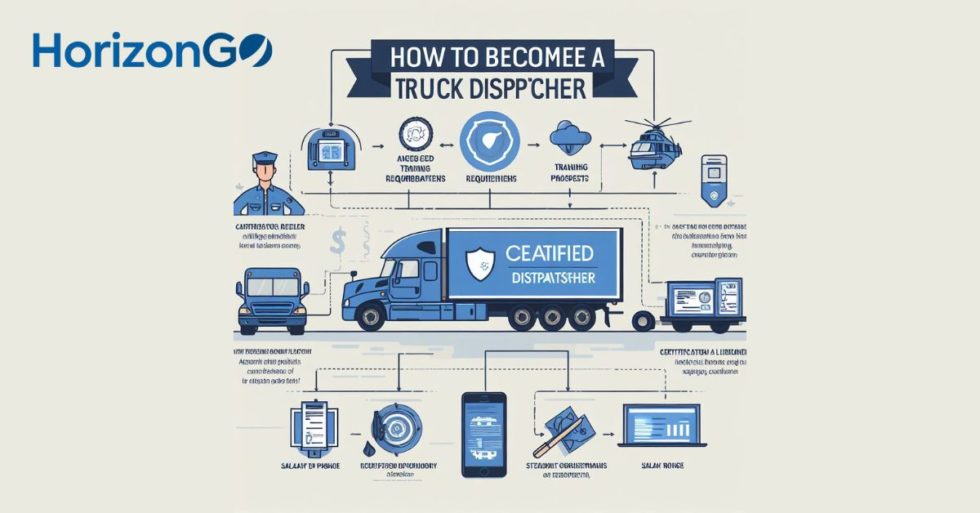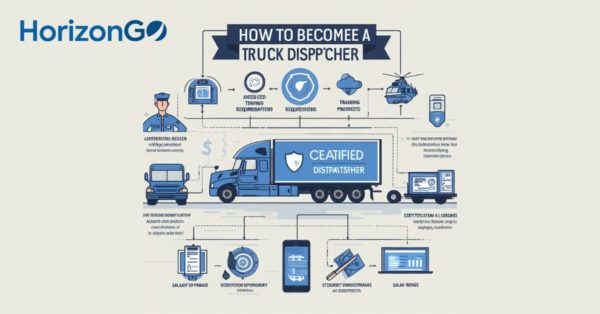Carrier Manager
The carrier Manager uses software called carrier Management Software that allows trucking and logistics companies to manage their business operations. It includes features such as dispatch, tracking, accounting, and billing.Carrier Manager is software that helps trucking and logistics management companies to optimize their operations and improve efficiency. It is typically used by companies that have a high volume of shipments or large fleets.
Choose Best Carrier Manager
Carrier Manager Responsibilities
The carrier manager is responsible for maintaining relationships with multiple carriers and managing the process of shipping products from one location to another. Carrier management is a complex field that requires knowledge of logistics and transportation.
- In some cases, the carrier manager may also be responsible for customs clearance and other international shipping regulations. A carrier manager must have excellent communication skills and the ability to work with different cultures and languages.
- To be effective, a carrier manager must also have strong negotiation skills and the ability to analyze transportation data to make informed decisions.
- One of the critical responsibilities of a carrier manager is planning and coordinating shipments with multiple carriers.
- The carrier manager must be able to track the progress of each shipment and ensure that it arrives at its destination on time.
- In addition, the carrier manager must be able to resolve any issues that may arise during the shipping process.
- Another responsibility of the carrier manager is negotiating rates with shipping companies.
- The carrier manager must be able to find the most competitive rates for shipping products and services.
- In addition, the carrier manager must be able to negotiate discounts and other perks with shipping companies.
- The carrier manager must be able to investigate claims and work with the shipping company to resolve the issue.
- Finally, the carrier manager is responsible for overseeing claims related to damaged or lost shipments.
The first step is to identify your needs. Do you need a carrier manager that can provide real-time tracking? Do you need one that offers route optimization?
Once you know what features you need, you can narrow down your options. Some carrier managers will offer a free trial period, so take advantage of that and test out a few different options.Another factor to consider is cost. While price shouldn’t be your only focus, it’s essential to make sure you find a carrier management system that fits within your budget.To choose the best carrier manager for your business:
- Start by assessing your needs and comparing pricing options.Once you have a good idea of what you’re looking for, take advantage of free trial periods to test out different options.Make sure also to read online reviews to get a better sense of each carrier manager’s features and capabilities.
One last tip: If you’re running an eCommerce business, try to find carrier management software that integrates with your shipping software. This will make it easier to ship orders. This will make the fulfillment process much easier and more efficient.
Factors consider while choosing the Shipping Carrier-
There are a few factors to consider when choosing a shipping carrier for your business, such as cost, speed, reliability, customer service, capacity, safety, and carrier stability. By taking all of these factors into account, businesses can be sure they choose the right shipping carrier for their needs.
There are a number of factors that need to be considered when choosing a shipping carrier. Here are some important ones:Reliability: Customer service: Capacity: Safety: Carrier Stability: Asset vs. Non-Asset-Based Carriers
1. Cost
This is probably the most important factor for many businesses. You need to find a carrier that offers competitive rates.
2. Speed
How quickly do you need your shipments to reach their destination? Choose a carrier that can meet your timelines.
3. Reliability
Can you count on the carrier to deliver your shipments on time and in good condition? This is important for businesses that depend on timely deliveries to serve their customers.
4. Customer Service:
If you have any special shipping requirements, be sure to find a carrier that can meet your needs. Look for one that provides excellent customer service and is willing to go the extra mile to keep their clients happy.
5. Capacity
If you plan on shipping large orders, make sure the carrier you choose has the capacity to handle your shipments. Some carriers specialize in small packages while others have the resources to handle large shipments.
6. Safety
You want to be sure your shipments will arrive safely at their destination. Choose a carrier that has a good reputation for safety and security.
7. Carrier Stability
Choose a carrier that is financially stable and has been in business for a number of years. This will help ensure that your shipments are handled properly and in a timely manner.
8. Asset Vs. Non-Asset- Based Carriers
When choosing a shipping carrier, it is important to consider both asset-based carriers and non-asset-based carriers. Asset-based carriers own their own vehicles, whereas non-asset-based carriers use third-party providers. Factors to consider when deciding between these two types of carriers include cost, speed, reliability, customer service, and capacity.
There are pros and cons to working with each type of carrier. Asset-based carriers typically have more control over their delivery process and can provide a higher level of customer service.
However, they may be more expensive than non-asset-based carriers. On the other hand, are often less expensive but may not have the same level of control or customer service. Ultimately, the decision between these two types of carriers depends on the specific needs of your business.There are many other factors to consider when choosing a shipping carrier, but these are some of the most important ones. Be sure to do your research and choose a carrier that will meet your specific needs.
There are many different carrier management software options available on the market. So it’s essential to take the time to find the one that’s right for your business. When choosing a carrier management system, there are several factors to consider.
Final Verdict
First and foremost, you should evaluate your needs and then compare pricing options. It’s also a good idea to take advantage of free trial periods and to read online reviews. Finally, if you’re running an eCommerce business, look for carrier management software that integrates with your shipping software. This will make the fulfillment process much easier and more efficient and help you meet your customers’ needs.
F.A.Qs: Best Carrier Manager
Q: What qualities should I look for in a Carrier Manager?
A: You should look for someone who has excellent communication and negotiation skills, as well as strong analytical and problem-solving abilities. They should also have a deep understanding of the transportation industry and be able to stay up-to-date on industry trends and best practices.
Q: What experience should a good Carrier Manager have?
A good Carrier Manager should have experience in the transportation industry, preferably in a logistics or supply chain management role. They should also have experience negotiating contracts with carriers and resolving issues related to carrier performance.
Q: How important is technology expertise for a Carrier Manager?
Technology expertise is becoming increasingly important for Carrier Managers, as many companies are adopting new technologies to improve their supply chain operations. A good Carrier Manager should have a solid understanding of transportation management systems (TMS) and other logistics software.
Q: How can I evaluate a candidate’s experience as a Carrier Manager?
You can ask the candidate about their previous experience negotiating carrier contracts, resolving carrier performance issues, and implementing transportation technology solutions. You can also ask for references and follow up with those references to learn more about the candidate’s experience and performance.
Q: What are some common challenges that Carrier Managers face?
Some common challenges include negotiating favorable contracts with carriers, ensuring carrier compliance with company policies and regulations, managing carrier performance, and resolving disputes or issues that arise between the company and its carriers.
Q: How can a Carrier Manager help improve my company’s supply chain operations?
A good Carrier Manager can help improve your company’s supply chain operations by negotiating better carrier contracts, implementing transportation technology solutions, and improving carrier performance through effective management and communication. They can also help identify opportunities for cost savings and process improvements.
Q: What role does a Carrier Manager play in ensuring compliance with industry regulations?
A Carrier Manager is responsible for ensuring that carriers comply with industry regulations, such as those related to safety, security, and environmental sustainability. They may also be responsible for ensuring that carriers comply with company policies and procedures.
Q: How does a Carrier Manager balance the needs of the company with the needs of carriers?
A good Carrier Manager must be able to balance the needs of the company with the needs of carriers to maintain positive relationships. This may involve negotiating mutually beneficial contracts, addressing carrier concerns and issues in a timely and effective manner, and maintaining open lines of communication.
Q: What strategies can a Carrier Manager use to improve carrier performance?
A Carrier Manager can improve carrier performance by establishing clear expectations and KPIs, monitoring carrier performance regularly, providing feedback and support to carriers, and implementing technology solutions to streamline operations and improve efficiency.
Q: How can a Carrier Manager help reduce transportation costs?
A Carrier Manager can help reduce transportation costs by negotiating favorable carrier contracts, optimizing carrier routes, consolidating shipments, and implementing technology solutions to improve efficiency and reduce waste.
Q: What are some emerging trends in the transportation industry that a Carrier Manager should be aware of?
Some emerging trends in the transportation industry include the adoption of new technologies, such as blockchain and artificial intelligence, the increasing demand for sustainability and environmental responsibility, and the rise of e-commerce and last-mile delivery solutions.
Q: How can a Carrier Manager ensure that carriers are delivering high-quality service to customers?
A Carrier Manager can ensure that carriers are delivering high-quality service to customers by establishing clear expectations and KPIs, monitoring carrier performance regularly, addressing any issues or concerns in a timely and effective manner, and maintaining open lines of communication with carriers and customers.










